#executive function difficulties
Explore tagged Tumblr posts
Text
Autistic and zoning out when the social battery runs out…
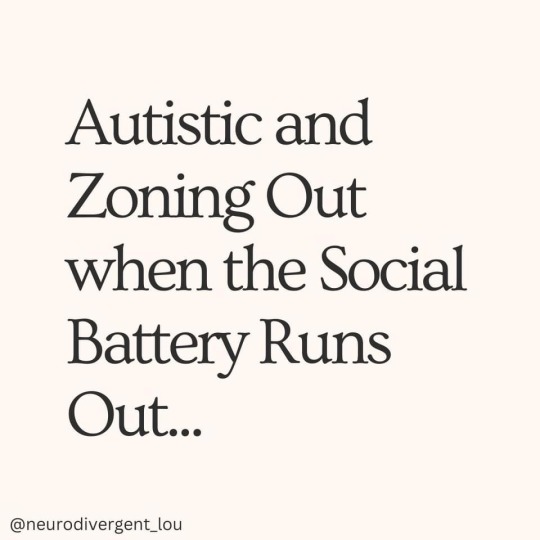

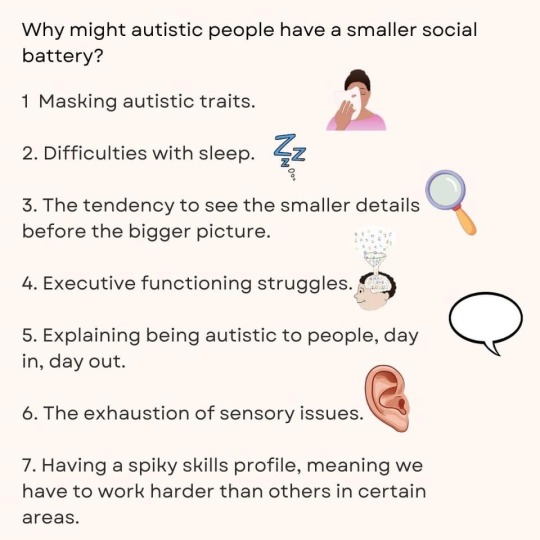
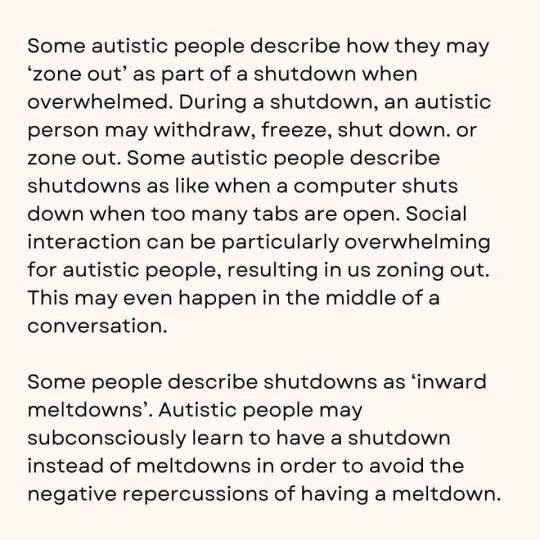
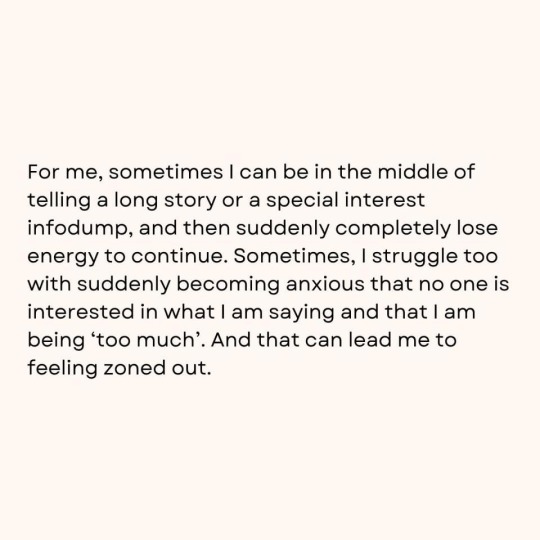

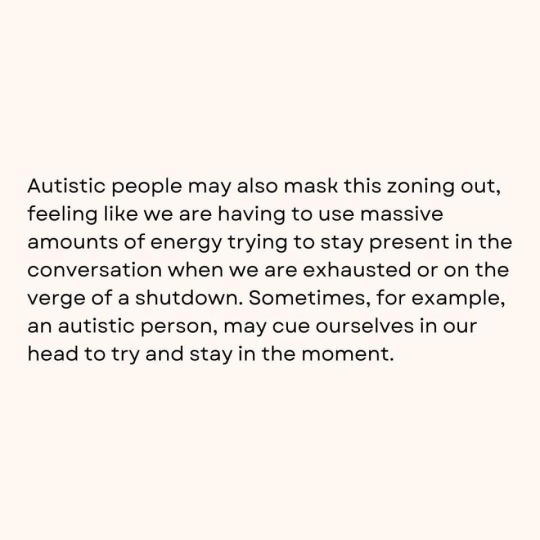
Neurodivergent_lou
#autism#actually autistic#autism awareness month#autism acceptence month#zoning out#exhaustion#executive function difficulties#insomnia/sleep issues#masking#notice small details/missing the big picture#explain what autism is repeatedly#often have to work harder in certain areas#neurodivergence#neurodiversity#actually neurodivergent#feel free to share/reblog#neurodivergent_lou (Facebook)
322 notes
·
View notes
Text
Frostheim house uniforms are knight themed and fairly uniform with only a few individualizations. However, we seem to have only seen male Frostheimer house uniforms so far--during the ball, the female Frostheimers wore gowns.


#tokyo debunker#tdb polls#frostheim#danie yells at tokyo debunker#(as a dataminer i know that the files for those dresses are just 'dress' whereas the boys' uniforms are 'house' like the ghouls so)#(they do probably have a more knight-like uniform)#(i'd like to see them. . . . . .)#those sprites aren't perfectly lined up because of technical difficulties and how long it takes to get sprite screenshots for that size but#they're mostly height aligned probably haha#someone asked me to take screenshots for every character's individual outfits for artist references and#i'd like to do that i can probably do that but it will take some time especially if i take them at a larger size.#so. i'll start working on that eventually. along with the other things i said i'd work on or that i'd started. . . .#i have poor executive function guys sorry i'm unreliable about this stuff lol
24 notes
·
View notes
Text
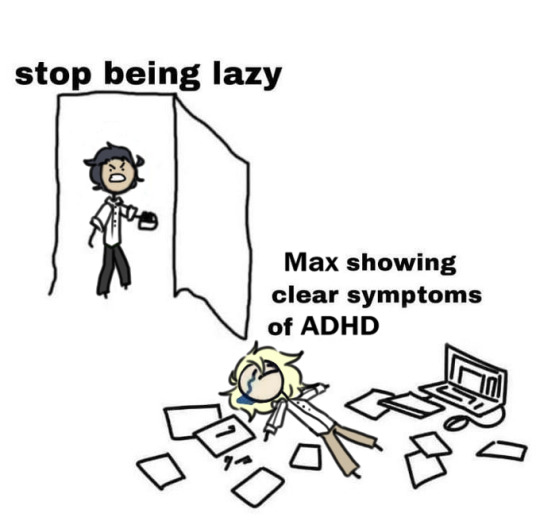
I think I finally figured out why I like him so much
#ADHD#Meme#Shitpost#Helix#SCII#Max Vyer#Dexter Favin#Me projecting all over Max: Man he's just like me fr#He feels so ADHD to me like hang on hear me out#He's extremely impulsive - absolutely dopamine-motivated - struggles paying attention to things he's not interested in -#But also gets fixated on things like his dream journaling and anything related to it - space/aliens/spaceships/etc.#It being like The Only Thing that he ''can focus on'' - as well as wanting to engage with it when he's stressed!#Has lots of half-abandoned hobbies and impulsively ''jokes'' about getting really invested in something and then losing interest#Like wanting a lot of animals - hehe - or what jobs he wants to do while committing to none of them#He also takes things really personally which like - RSD. Do I need to explain lol#Has difficulty making and keeping friends - is forgetful and ''forgetful'' hehe I'm quite familiar#I also kind of read him getting high or drunk regularly as like?? really maladaptive attempts at self-medicating??#Dopamine-deficient brains are way more likely to develop or lean on addictions to be at least Closer to level stimulation#He's constantly understimulated and all his caretakers see it as a moral failing when like! He's just expected to Get Guud lol#He needs accommodations! His brain is clawing at the walls trying to get his Executives to Function!#This man has undiagnosed ADHD please get him to a psychologist#Lbh tho his parents would be the type to say ''Don't use your diagnosis as an excuse'' as if he could just control it lol#Don't even get me started on when he and ZEX Freaky-Friday lol#Something something ZEX problematic queer something something Max problematic ADHD lol - look if it's Correct it's Correct!#Anyway this is just my reading and I'm Absolutely Definitely projecting to some degree - please read Helix and love Max of your own volition
13 notes
·
View notes
Text
I need to put my phone down and -
I should really -
I need to put my phone down -
Ok Im really gonna put it down in a minute -
Oh no the cat has snuggled up to me at the exact moment I was going to get up! I cant disappoint her now by immediately moving! I better stay put poor kitty!
(This is in the same category as "I've been just about to go use the bathroom for the last half hour why did you go in to shower right now!)
#mine#procrastination/executive function/changing task difficulties wheeeeeee#its so hard when the cats enter the picture theyre so cute and soft and loving and now I feel bad to get up#instead of annoyed i cant#i must disappoint my feline child in the name of self care :(#im sorry kitty
8 notes
·
View notes
Text
By the way, you can improve your executive function. You can literally build it like a muscle.
Yes, even if you're neurodivergent. I don't have ADHD, but it is allegedly a thing with ADHD as well. And I am autistic, and after a bunch of nerve damage (severe enough that I was basically housebound for 6 months), I had to completely rebuild my ability to get my brain to Do Things from what felt like nearly scratch.
This is specifically from ADDitude magazine, so written specifically for ADHD (and while focused in large part on kids, also definitely includes adults and adult activities):
Here's a link on this for autism (though as an editor wow did that title need an editor lol):
Resources on this aren't great because they're mainly aimed at neurotypical therapists or parents of neurdivergent children. There's worksheets you can do that help a lot too or thought work you can do to sort of build the neuro-infrastructure for tasks.
But a lot of the stuff is just like. fun. Pulling from both the first article and my own experience:
Play games or video games where you have to make a lot of decisions. Literally go make a ton of picrews or do online dress-up dolls if you like. It helped me.
Art, especially forms of art that require patience, planning ahead, or in contrast improvisation
Listening to longform storytelling without visuals, e.g. just listening regularly to audiobooks or narrative podcasts, etc.
Meditation
Martial arts
Sports in general
Board games like chess or Catan (I actually found a big list of what board games are good for building what executive functioning skills here)
Woodworking
Cooking
If you're bad at time management play games or video games with a bunch of timers
Things can be easier. You might always have a disability around this (I certainly always will), but it can be easier. You do not have to be this stuck forever.
#actually autistic#executive dysfunction#neurodivergent#adhd#not news#hope#at least it's been very hopeful for me
76K notes
·
View notes
Text
Autism Speaks ~ Are You Listening? Neurodiverse Awareness ~ Repost
The following is written by my beautiful daughter, Kai, who is diagnosed as Autistic, as is one of her children. She is an advocate for the Autistic/Neurodivergent community. Her empathetic and compassionate insights shine an educated light on the realities people on all levels of the Autistic Spectrum face. I’ve been thinking about something a lot. Low support needs autistic people aren’t…
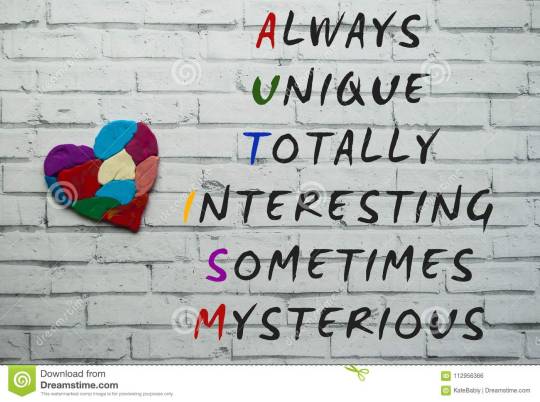
View On WordPress
#austic#autism in adults#Autism warning signs#autistic spectrum#behavorial signs#brain#brain function#brain processes#child#communication signs#COMPASSION#difficulties in life#educate#education#empathy#executive function#language#Love#mask#masking#motor skills#neurodivergent#neurodiverse#paeent#perception#sensing#sensory signs#social signs#support#traits
0 notes
Text
had a drs appointment was like "im having a lot of difficulty organizing and initiating tasks and its distressing me" and hes reccomending to me dumb adhd self help books im gonna scream
#hes not WRONG that these tools r helpful ive just already had loads of adhd therapy#me: my executives arent functioning and its really scary and upsetting and imparing my day to day capacity to do tasks#concussion specialist who doesnt have focus in adhd patients: well you need to form habits#i think he didnt quite get the part im upset abt is Wanting And Trying to do things. planning it. and then brain turning to smoke#not a bad doctor or inappropriate advice! he is just a specialist in something that causes similar functional difficulties as adhd#and so instead of being like “yeah its gonna suck youre on a normal timeline. try adaptive/accomodative and gradual habit formation”#he like baby explained incremental habit formation to me im like ive trained myself to do so many things w that#when i was like its distressing me and to hear this is normal timeline helps he stopped being like read some self help books#start finishing my beloathed....
0 notes
Text
What Resources Are Available For Adults With Adhd In Learning?
Living with Attention Deficit Hyperactivity Disorder (ADHD) presents unique challenges, particularly in the realm of learning and education. However, with the right support and resources, adults with ADHD can overcome barriers and thrive academically. In this comprehensive guide, we'll explore the various resources available to support adults with ADHD in their learning journey, including Tutoring For ADHD Students and assistance for overcoming learning difficulties in adults.
Understanding ADHD and Learning Challenges
ADHD is a neurodevelopmental disorder characterized by symptoms of inattention, hyperactivity, and impulsivity. While often associated with childhood, ADHD can persist into adulthood and impact various aspects of daily life, including learning and academic performance.
For adults with ADHD, Learning Difficulties In Adults may manifest in several ways, including:
Difficulty maintaining focus: Adults with ADHD may struggle to sustain attention on tasks, leading to difficulty concentrating and staying engaged in learning activities.
Impulsivity: Impulsivity can interfere with decision-making and impulse control, making it challenging to follow instructions or complete tasks in an organized manner.
Executive function deficits: Executive functions such as planning, organization, and time management may be impaired, affecting the ability to effectively structure study sessions and manage deadlines.
Resources for Adults with ADHD in Learning
1. Educational Support Services
Many educational institutions offer specialized support services for students with ADHD, including:
Academic Accommodations: Accommodations such as extended time on exams, preferential seating, and note-taking assistance can help level the playing field for students with ADHD.
Study Skills Workshops: Workshops focused on study skills, time management, and organizational strategies can provide practical tools for managing academic tasks more effectively.
2. Tutoring for ADHD Students
Tutoring programs specifically tailored to the needs of students with ADHD can provide personalized support in areas such as:
Study Strategies: Tutors can help develop customized study strategies that align with the individual's learning style and address areas of difficulty.
Homework Assistance: Tutors can provide guidance and support with homework assignments, breaking tasks into manageable steps and providing feedback on completed work.
Test Preparation: Tutors can assist with test preparation techniques, including practice exams, review sessions, and test-taking strategies to reduce anxiety and improve performance.
3. Cognitive Behavioral Therapy (CBT)
CBT is a therapeutic approach that focuses on identifying and modifying negative thought patterns and behaviors. For adults with ADHD, CBT can be beneficial in addressing:
Procrastination: CBT techniques can help individuals recognize and challenge procrastination habits, replacing them with more productive behaviors.
Time Management: CBT can provide strategies for better time management, prioritization, and organization to improve productivity and reduce stress.
Stress Management: CBT can teach coping skills for managing stress and anxiety related to academic demands, fostering resilience and emotional well-being.
4. Assistive Technology
Assistive technology tools and apps can support adults with ADHD in various aspects of learning, including:
Time Management: Calendar apps, task managers, and reminder notifications can help individuals stay organized and manage deadlines effectively.
Note-taking: Note-taking apps with features such as voice recording, speech-to-text transcription, and multimedia integration can facilitate more efficient note-taking and information processing.
Focus Enhancement: Apps that block distracting websites or provide customizable work intervals and breaks can help improve focus and concentration during study sessions.
5. Support Groups and Peer Networks
Joining support groups or peer networks for adults with ADHD can provide valuable emotional support, practical advice, and a sense of community. These groups offer opportunities to:
Share Experiences: Connecting with others who understand the challenges of living with ADHD can reduce feelings of isolation and provide validation and empathy.
Exchange Strategies: Participants can share strategies, tips, and resources for managing ADHD symptoms and overcoming learning obstacles.
Celebrate Successes: Celebrating achievements, no matter how small, can boost self-esteem and motivation, fostering a positive outlook on learning and personal growth.
Conclusion
Living with ADHD presents unique challenges, but with the right support and resources, adults with ADHD can unlock their full potential in learning and education. From educational support services and tutoring for ADHD students to cognitive behavioral therapy, assistive technology, and peer support networks, a range of resources is available to empower individuals with ADHD to thrive academically and reach their goals. By tapping into these resources and leveraging personalized strategies, adults with ADHD can overcome learning difficulties and achieve success in their educational pursuits.
#Learning Difficulties In Adults#tutoring for adhd students#executive function tutor#Menlo park ca act prep tutor#learning consulting menlo park#Educational Differences#Menlo park ADHD Testing#Menlo park act prep tutor#Menlo Park coaching executive function#Learning Consulting Menlo Park#Menlo Park ADHD tutoring#ADHD assessment menlo park#Menlo Park ACT tutoring
0 notes
Text
ADHD vs, Autism










The Autistic Teacher
#autism#actually autistic#adhd#adhd post#autism vs adhd#social difficulties#sensory input#executive function#it can be a challenge#neurodivergence#neurodiversity#actually neurodivergent#feel free to share/reblog#The Autistic Teacher (Facebook)
394 notes
·
View notes
Text
Okay so hear me out...
Both the Touden siblings are autistic. That's not too controversial a take. Senshi is also autistic, also not too hot a take. Kabru is autistic and very good at masking in social situations, and Izutsumi may have some issues (difficulties with interpersonal relationships, distorted sence of self, intense emotional responses, eating disorders, risky behaviours) or she could just be a cat and a teenager. My interest here is Marcille... I think Marcille might have ADHD, and it's not just her fussy eating and persistent absent mindedness, it's that combined with her balance.
Tests on wii balance boards, of all things, showed that people with ADHD have consistently worse balance than a control group, and that children with ADHD have significantly more mild accidents due to poor coordination. You even see this in some adults with the "ADHD walk" where they instinctively sway or lean around objects in an exaggerated way as they have internalised a fear of hitting them as they walk... and tallman Chilchuck complains during the Changling arch that Marcille is still clumsy as a half-foot, to a degree that suprises Chilchuck. Add that to some difficulty making decisions despite being very academicly gifted and her occasional executive function failures, and I think ADHD isn't an unreasonable leap.
Interestingly Chilchuck's anxiety was cured when he became a tall man, suggesting that this is an inherent trait of half-foots and not a condition unique to him, so he might be neurotypical for a half-foot, and half foots might just be naturally more risk adverce and neurotic than the other races. He's litteraly the token neurotypical friend in the group, which might explain his long-suffering attitude towards the others.
Or I'm so desperate for good ADHD representation that I'm projecting.
Edit: Following education I have removed references to BPS as it's not my area of experience and Izutsumi does not match the diagnosis criteria.
#dungeon meshi#falin touden#laios touden#marcille donato#senshi of izganda#izutsumi#chilchuck tims#kabru of utaya#autism#Adhd#borderline personality disorder#Neurodivergant
678 notes
·
View notes
Text
Top 3 Games That Don't Exist Anymore
LEMMINGS (1991)
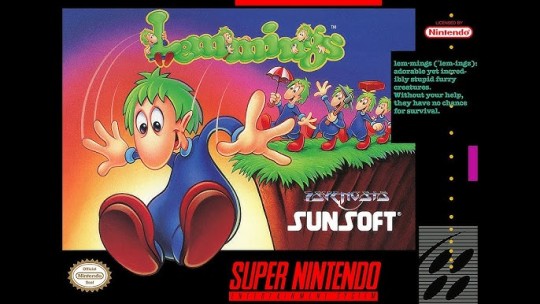
Absolutely incredible puzzle game (based on the great lemming myth) where you attempt to guide a horde of lemmings to their home. Obstacles get in their path, so you have to give them jobs (building staicases, bashing through walls, digging, through the floor, stopping other lemmings from moving) to help them get home. It was cute, simple to understand, and INCREDIBLY difficult—especially once you got to the difficulty level "taxing".
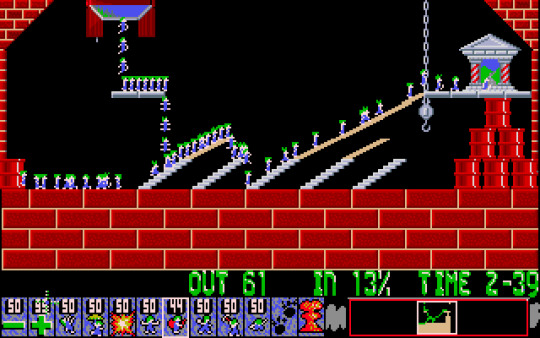
WHAT HAPPENED TO IT
Folks just forgot about it and it kind of bounced around, never getting picked up when things like the Wii online store came out. After some remixed variants it never got a proper release.
HOW TO PLAY IT NOW
Aside from emulators, there's a free (with purchases) iOS/Android version of Lemmings now. The functionality is similar, and it's definitely cute, but it's not exactly the same in terms of gameplay, sound (the music!), and the levels are different. I'd love to be able to play the original levels again.
BOOKWORM ADVENTURES (2006)
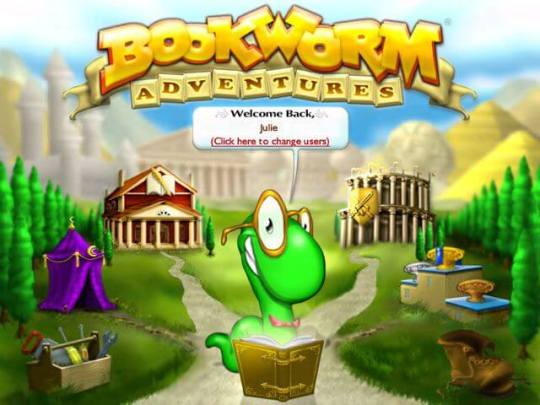
Utterly incredible spelling game. You play a cute little bookworm who has to travel through time and literature to battle beasties by spelling words. The longer the word you spell (and the more value the letters have as in Scrabble) the more damage you do. It's cute, it's educational, it's fun, it's competitive (there are records for biggest word, most damage, etc. so you can compete with friends); it's a nearly perfect game. And there was a sequel, too!
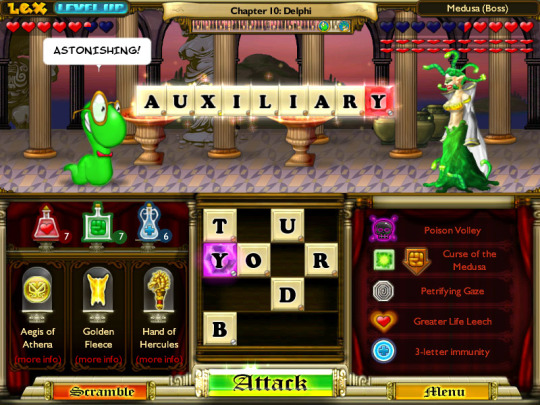
WHAT HAPPENED TO IT
EA purchased PopCap games and then, one day, for apparently no reason, removed it from their online store. And that's it. It's gone. Forever.
HOW TO PLAY IT NOW
You can pirate it, but otherwise, the closest I've found is a mobile game called Letter Quest: Grimm's Journey by Bacon Bandits. The core functionality is there, but it's not really as clever or as cute or as fun. There's an Easter egg for fans of Bookworm, and bless them for creating a very similar game, but it is just not the same.
UNIRACERS (1994)
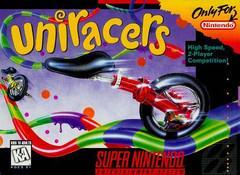
Also called Unirally, this was am awesome concept that was perfectly executed. You're unicycles that race really fast and do crazy tricks. All the stunts have names, you get points for them, there's track obstacles. It's simple, pure, unadulterated fun.
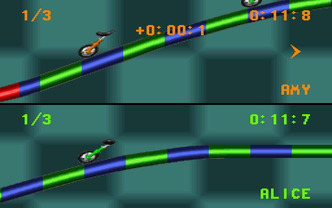
WHAT HAPPENED TO IT
This absolutely drives me up a wall. Pixar sued the makers of Uniracers because they said their unicycles looked like the unicycle in their short film Red's Dream from 1987. Like ARE YOU KIDDING ME?! Thematically, the two things aren't similar at all, and, as the creator of the game said, "[t]here's not a lot of ways you can bring life to a unicycle without looking like the one Pixar did". Like...duh. The judge who made this ruling did irreparable damage to video games.
HOW TO PLAY IT NOW
There's no legal way to play this game, and, thanks to Pixar, there likely never will be. I've never encountered anything similar. It was such a unique play experience.
230 notes
·
View notes
Text
Despite how popular and effective body doubling appears to be, empirical research has not tested it as an intervention for people with ADHD at all. It’s a shockingly simple way to address a variety of problems, from a child struggling to complete his homework, to a grown adult who can’t tackle the massive pile of used clothes on her couch. Doctors prescribe stimulants to ADHDers facing “executive functioning” difficulties like these all the time. Yet no clinician has ever examined whether prescribing a body double would be an effective treatment — despite the fact that anecdotally, it addresses the problem more directly than meds do, and it doesn’t come with the risk of building up a physical tolerance or any unwanted side-effects. To understand why body doubling is so neglected by professionals, we have to look at the flawed way that psychiatry and psychology conceptualizes the ADHDer’s experience. Professionals largely view ADHD as a disorder of motivation and attention, a disability located inside the mind that must be solved on a solely individual level. This framing makes it impossible to understand the ADHDer as a unique, neurodivergent social being interacting with a broader cultural and economic context. Every feature of ADHD, as it is clinically described, is one of pathology and lack. ADHDers are “time blind”: they don’t have an instinct for what hour of the day it is, or how long a task takes. Nevermind that humans have relied upon time-keeping technologies for as far back as recorded history goes, suggesting that none of us approach time by instinct. ADHDers lack focus, except for when they don’t, in which case they’re suffering from hyperfocus, and that’s actually a problem too. ADHDers are emotionally volatile — but they’re also too spacy. They dissociate from reality too much, but when they take steps to address this, they are guilty of needing too much stimulation and being too active. And they’re lazy — except for when they’re staying up very late at night working, being most productive during the hours society tells them they ought to be asleep. If the many complex features of Autism can be best summed up by saying that we have a bottom-up processing style in a world built for top-down processors, then the best way to summarize ADHD is this: people with ADHD are highly socially motivated, but they live in a world where independence is prioritized.
Read the rest of this essay for free on my Substack!
2K notes
·
View notes
Note
Hello I actually found you through your recent riddle mommy kink post and I was actually surprised and happy to see it was a psychological analysis! My pals and I aren’t pros but we do have a big interest in psychology and mental health so sometimes we have fun trying to figure out what the characters “have”.
That being said, we think at least a few characters might have adhd. Kalim and deuce, but also more controversially Floyd. I sometimes get met with “nah Floyd is just a jerk” to which I reply “you can have adhd and be a jerk” lmao. Obviously we believe the symptoms for all the lads just express themselves a bit differently per individual.
Do you have any thoughts?
ADHD: A deeper look into Deuce, Floyd and Kalim's brains
Disclaimer: Although this post is written by a professional psychologist, it is not intended to serve as a formal diagnosis. Rather, it is a character analysis of Deuce Spade, Floyd Leech and Kalim Alasim, created out of personal interest and passion for world-building. In psychological practice, accurate assessment should never be based solely on external observation.
Author Notes: Hello! I decided to answer this ask because it’s a genuinely interesting one - and I’ve actually outlined neurodivergent profiles for both Deuce and Floyd before as a little hobby. That said, I’d like to kindly remind you to be a bit more mindful of the rules in the future. I usually cover one character at a time, as noted in the guidelines. I truly didn’t mind doing this request - it was fun to explore, and I kept it fairly surface-level... but if you’re ever hoping for a more in-depth analysis, please make sure to follow the rules.
I hope this doesn’t come off as rude! Thank you for understanding. 💙
What is ADHD
Attention-Deficit/Hyperactivity Disorder (ADHD) is a neurodevelopmental condition characterized by persistent patterns of inattention and/or hyperactivity-impulsivity that impair functioning. According to the Diagnostic and Statistical Manual of Mental Disorders (DSM-5) criteria, these symptoms must last at least six months in multiple settings and cause difficulties at school, work, or social life.The DSM-5 outlines symptoms under two core categories:
Inattention: frequent careless mistakes, difficulty sustaining attention, seeming not to listen, not following through on tasks, disorganization, avoiding tasks requiring sustained mental effort, losing things, distractibility, and forgetfulness.
Hyperactivity and Impulsivity: fidgeting, leaving the seat when remaining seated is expected, feeling restless, difficulty engaging in activities quietly, talking excessively, blurting out answers, difficulty waiting turns, and interrupting others.

Deuce Spade is described on the wiki as a hardworking, straightforward first-year student in Heartslabyul who “is very serious, but a little disorganized”. He is competitive and morally upright, and although he used to be a delinquent, he now strives to become an honors student. Deuce is noted for giving his best effort and having strong self-awareness about improving himself. These traits suggest he is generally focused on his goals. However, the wiki also notes that Deuce “had sharp tongue and often got involved in fights” as a delinquent, and that he can be “easily provoked” with violent tendencies when angry.
Arguments pro ADHD: One possible ADHD-related trait is the mention that Deuce is “a little disorganized”. Disorganization can reflect difficulties with executive function and organization, which are common in inattentive ADHD. His quick temper and history of impulsive aggression might also hint at impulsivity. However, it is important to note that Deuce’s aggression is described as reactive. The wiki explicitly says he “only picks fights when provoked”, implying his actions are deliberate responses rather than spontaneous impulsivity.
Arguments against ADHD: On the other hand, most of Deuce’s character descriptions contradict ADHD traits. He is depicted as hardworking and goal-oriented, actively trying to improve himself, and possessing strong moral understanding. These qualities suggest good focus and motivation. Deuce’s awareness of his own flaws and his conscious effort to become better (e.g. working to be an honors student) indicate organized thinking and planning. Furthermore, the only impulsive behavior noted – fighting when angry – is context-specific and controlled. In summary, aside from a brief mention of being “a little disorganized,” Deuce’s canon portrayal emphasizes diligence and deliberate action, which are inconsistent with a typical ADHD profile.
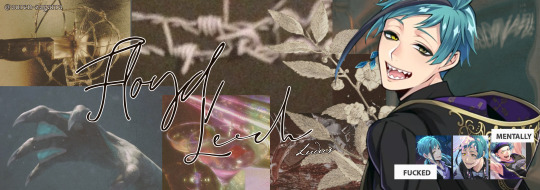
Floyd Leech is a second-year Octavinelle student whose personality strongly suggests ADHD-like behavior. The wiki describes him as initially “very laid back and lazy”, with an unpredictable attitude and speech. Crucially, Floyd exhibits pronounced mood swings and impulsivity: “he won’t hesitate to drop something and leave the scene if he decides it’s boring or not worth the time/effort”. On the other hand, when something does catch his interest, he becomes “somewhat dedicated” to it. This pattern - abandoning unstimulating tasks and hyper-focusing on exciting ones - mirrors ADHD tendencies to lose interest quickly and focus intensely only on preferred activities. Furthermore, the wiki notes that “he’s prone to doing things on impulse simply because he wants to do them”. He is also described as having a nearly photographic memory for information he finds interesting, but “quickly forgets it” if he’s not interested, again reflecting selective attention. Floyd’s hobbies and talents also indicate high physical activity: he lists dancing as a hobby, talented at parkour and his pet-peeve is restrainment. This suggests restlessness and an “on-the-go” energy consistent with hyperactivity.
Arguments pro ADHD: Floyd’s behaviors align closely with DSM-5 criteria. His tendency to abandon boring tasks and act on impulse corresponds to inattention and impulsivity symptoms (e.g. avoidance of tasks requiring sustained effort, acting without thinking) while his memory pattern (remembering only what interests him) reflects distractibility. His physical restlessness (parkour, dancing) matches hyperactivity (as if “driven by a motor”). The wiki explicitly notes he has “infamous mood swings” and unpredictable behaviort. All these point toward a combined ADHD presentation.
Arguments against ADHD: The main counterpoint is that Floyd is described as lazy and laid-back, which might seem opposite to the typical hyperactive image. However, this can be reconciled: ADHD individuals often appear lazy or unmotivated when tasks are not engaging. Floyd’s laziness could simply reflect boredom. In fact, the evidence of his high energy when motivated (parkour, dancing) suggests that under the right stimulation he is anything but lazy.

Kalim Al-Asim, the Scarabia housewarden has a cheerful and friendly personality but also shows some traits that could be misread as inattentiveness. The wiki describes Kalim as “quite ditsy and clumsy,” requiring Jamil to help him with dorm duties. He is also noted to be “not very careful with his words,” once unintentionally insulting another student. These qualities - clumsiness, distractibility, and impulsive speech - might superficially resemble inattentive or impulsive ADHD symptoms (e.g. forgetfulness, saying things without thinking). Kalim’s hobby of partying and his large, active family environment suggest he is socially energetic.
Arguments pro ADHD: One could argue Kalim’s need for assistance (Jamil “needing to help him do his task”) indicates executive-function weaknesses, and his obliviousness could hint at inattention. His clumsiness and occasionally saying things without thinking might be seen as signs of distractibility or impulsivity. The combination of being lively (he loves parties) and somewhat scatterbrained could fit an ADHD inattentive profile.
Arguments against ADHD: Kalim’s infantilization during childhood could very well explain his clumsiness and apparent lack of awareness, without suggesting a neurodevelopmental disorder like ADHD. Kalim comes from a wealthy, sheltered background where he was deeply adored and protected, often treated more like a treasured figurehead than someone expected to handle responsibilities. This overprotectiveness likely led to:
Underdeveloped executive function skills: Since he didn’t need to manage tasks or face real consequences growing up, he may not have developed the organizational or planning skills others his age have.
Dependence on others (like Jamil): His reliance on Jamil isn't necessarily due to cognitive issues, but because he was never expected to function independently.
Naïveté and impulsive speech: If people always reacted positively to him and rarely corrected him, he wouldn’t learn to filter his words or think critically before speaking.
This kind of upbringing often results in what looks like clumsiness or absentmindedness, but it’s environmental rather than neurological. So rather than ADHD, Kalim’s traits seem more like the outcome of emotional overprotection and a lack of structured challenges during formative years.
Conclusion
In summary, the canonical evidence suggests that Floyd Leech most closely exhibits ADHD-like symptoms, while Deuce Spade and Kalim Al-Asim do not. Deuce is generally focused, diligent, and only mildly disorganized with any aggression being situational rather than impulsive. Kalim shows occasional forgetfulness and clumsiness, but is otherwise mentally sharp and empathetic. In contrast, Floyd’s profile explicitly includes classic ADHD patterns: he abandons uninteresting tasks, forgets mundane information, acts on impulse, and has high physical energy (parkour, dancing) consistent with hyperactivity.
Don’t forget, this is a simple analysis. You’re free to keep your headcanons - this is just a quick overview of the topic! Please don’t take my analysis as a definitive conclusion, as diagnosing a neurodivergence is complex - especially without actually talking to the individual.
#twst#twisted wonderland#twst x reader#twisted wonderland x reader#twst psychology#psychology#deuce#deuce spade#deuce x reader#deuce spade x reader#deuce psychology#floyd#floyd x reader#floyd leech#floyd leech x reader#floyd psychology#kalim#kalim x reader#kalim psychology#kalim al asim x reader#kalim al asim#kalim alasim#kalim alasim x reader
83 notes
·
View notes
Note
Wait... Autism and dyspraxia share symptoms? I've had diagnoses for both of them for at least a decade and I had no idea.
I thought dyspraxia only affected my co-ordination and autism had nothing to do with that...
All neurodiversity has overlaps with others somewhere. I'm synaesthetic, which seems like a fun wacky brain thing with no downsides, except it often goes hand in hand with sensory overload. My ADHD also gives sensory overload at times, so between the two, I have to wear earplugs when I go shopping so that I can stay long enough to actually buy what I need.
But also, when we talk about "The part of the brain that does X", we forget that X will not be the only task done in that region; and, of course, that X tends to be the 'output task' that we see and understand, rather than something more fundamental. This means, for example, that we go "Ah, dyslexia, the condition that means you mix up letters in writing"; forgetting that written alphabets are invented by humans, and we do not have a brain region that evolved to allow writing. What's happening in a dyslexic brain is more fundamental than that. Mixed up letters are a symptom, as it were, but so is impaired time management, and impaired executive function, and forgetting words and names in verbal speech, and sometimes maybe going semi-verbal or even non-verbal during times of high stress.
(Also, dyslexic symptoms present far less in languages with consistent orthography. This comes up a lot in Welsh-medium schools; dyslexic kids can read and write far better in Welsh than in English.)
Anyway, a very common characteristic of dyspraxia - generally described as just being about physical coordination - is that planning tasks becomes difficult. Another is time blindness, and time management challenges. Another is executive dysfunction. And there's a body of evidence about motor difficulties in autistic people, ranging from issues with hand-eye coordination to atypical gaits.
So: yes! There's crossover between the two, and you may or may not have characteristics to that effect.
220 notes
·
View notes
Text
Let’s Discuss: Energetic Cleansing
Let’s get some clarifying details out the way before we get into the material.
This article assumes that you already know + can execute the basics of energy work without the hang-ups that a beginner would get stuck on.
It’s not going to hold your hand discussing theories about energy, the astral realm, etc. Intermediate practitioners are the target audience for this passage.
Don’t know if you’re intermediate or a beginner? Here’s a difficulty benchmark for this article:
Do you know how to safely cast a functional + effective spell without having to be supervised by an elder for safety?
Are you able to direct and cast that energy with absolute confidence in your ability to do so?

If yes to both, this article is relevant to your skill level.
If no to either:
You can use this article as study material to go over with a spiritual elder.
If you’re a solitary practitioner, use this article as supplemental material for your research under your own discretion.
If you’re a complete beginner and feel like you’re going to end up with more questions than answers, continue doing more research + practice on the basics and save this for later when you feel ready.
Now that we’ve gotten those important details out the way, we’ll begin our discussion.
About cleansing
“Spiritual cleansing” is a term frequently thrown around in witchy and spiritualist spaces alike. “Energetic cleansing” is commonly used interchangeably with “spiritual cleansing.”
The general definition of cleansing is removing/clearing any energy that’s considered “negative” or “toxic” – which in turn causes spiritual blockages that could hinder manifestations, health, growth, prosperity, etc.
It’s a broad definition. For practical application of cleansing in your craft, I want to offer some extra details that can support you in crafting your cleansing works.
Factors to consider in your cleansing works
Why you’re cleansing depends on the situation. Sometimes you need a sterile environment for raising a specific energy in your circle. Other times, you’re aiming to “reset” the ambience of a space (e.g - after a house party, you cleanse any lingering foreign energies that have been brought in by your guests.)
The form of your cleansing rituals will depend on the following factors:
What energy you’re intending to cleanse / “wash” away
The subject you’re directing cleansing energy to (e.g talisman, room, shoes) + your relationship to the subject AND the energy that you’re cleansing away.
The magnitude (power) of the energy you’re trying to cleanse away.
Depending on what you’re facing, you could end up with a simple cleansing ritual, or a more aggressive and targeted ritual. We’ll go over the factors in detail.
– What energy you’re intending to cleanse / “wash” away
A lot of power lies in names. Naming a person, naming a phenomenon, naming an energy… a name can reveal a lot of context and information you wouldn’t be able to get otherwise.
The clearer you name an energy you’re trying to cleanse away, the more effective that the cleansing will get. Even if you don’t know the name of what you’re trying to cleanse away, describing its presence, physical manifestations, and energy signature is enough to distinguish it from just any other energy around you.
Identification of what you’re working with allows you to better understand:
Your relationship to that energy (harmonious? chaotic? stable? unpredictable?)
The magnitude of that energy (how pervasive its energy is astrally AND physically)
How that energy affects the subject (which you should take into consideration while crafting your cleansing!)
Not only does it help with the above, distinguishing the negative/undesired energy will help you have a better time with your recordkeeping. Whether you keep note of your rituals through a notebook, binder, or online journal, having specific energies charted down can help you recognize symptoms of its presence again.
(A rather loose) Example: Natalie is moving into a new apartment, and she feels an unsettling heaviness in the master bedroom. She can’t tell if the heaviness is an entity, or residual energy from an event that happened before she moved in – nobody mentioned anything about someone dying here or anything…
Regardless, she sets out to investigate for an answer on how to clear it up. After taking necessary precautions (insert Natalie doing a protection prayer here), she stays in the room to observe what emotions and sensations come up. She records the following:
The longer she sits there, an unexplainable feeling of bleakness comes up.
The room feels like it’s closing in, almost suffocating.
She doesn’t pick up any usual signs of an active entity inhabiting a space.
Based on the observations she made (+ if applicable, any input from her ancestors / guides) she concludes that the dense energy she’s feeling is residual emotional energy that has culminated over time in this space. After determining this amount of information is enough, she labels this specific heaviness as “this room’s emotional past.”
Now that she has successfully identified + named the specific energy she’s wanting to clear away, she can move on to crafting the cleansing energy she will cast within this room.
Now, think about the last time you cleansed the energy of a space. At that moment, you were Natalie.
How did you handle it?
What did you use to distinguish that undesirable energy from everything else?
What did you use to record your findings about that energy? Was the energy ever recurrent?
If you have a solid grasp on this part, we’re moving on to the next one.
– The subject you’re directing cleansing energy to (e.g talisman, room, shoes) + your relationship to the subject AND the energy that you’re cleansing away.
It’s important to recognize the subject that you’re directing cleansing energy to, since you want to ensure that your cleansing energy isn’t interfered with / nullified by other forces. With recognizing the subject, you’re also tasked with the duty of acknowledging your relationship to the subject.
If you’re cleansing something like your house, something filled with your own personal energy – you likely don’t have to worry about anything getting in between your cleansing ritual unless you’re dealing with more extreme circumstances (e.g possession, haunting, etc..).
If you’re cleansing something that has heavy past energetic/spiritual ties to another’s energy, you’ll want to make sure you read the energy of that subject thoroughly to ensure that you’re sending the proper amount and type of energy necessary to cleanse away your undesired energies.
Due to how situational energetic ties to specific subjects are, it’s better for me to give factors for you to consider when crafting your cleansing spell.
Consider your relationship to any existing history with the subject (e.g if you were cleansing a talisman, are you initiated within the tradition / culture necessary for you to work with said energy?)
Note any prominent energy signatures you pick up within the subject.
Note any prominent spirits and archetypes related to the subject, along with you / your cleansing energy’s relationship to it.
If you pick up any energetic points that give off high activity (abnormally high amounts of a specific type of energy, or in some cases some energetic points acting like a portal) note that down as well.
Use all the recorded details to come to a conclusion about how to effectively counter (which in turn, allows you to cleanse) said factors in your cleansing spell.
– The magnitude (power) of the energy you’re trying to cleanse away.
The main reason I wanted to point out magnitude is because I know that there are a lot of practitioners out here doing the work in the mud for their communities – for this group of people, it’s easy for them to come across heavy energies that are way too difficult and potentially unsafe for the average practitioner to address. For example:
Situations where ancestral curses run DEEP in the energetic field of your subject.
Subjects where extreme trauma + ill intentions (murder, sexual assault, suicide, etc) are significant in their signature.
When you start practicing outside of your daily life, you get exposed to just how fucked up reality can get + just how malicious entities can be. It's important to know your depths and what you’re able to handle.
Do NOT entangle yourself in any energetic situations that you know little about.
I’ve observed that when this happens, it’s usually because someone else dragged them into it (whether it be intentionally or not).
Know your limits, educate yourself on what you’re entering, and double down on your protections.
If you’re being initiated into something, make sure to get the “fine print” of what you’re truly getting yourself into.
If you find yourself becoming overwhelmed by specific energies to the point that it’s affecting your physical wellbeing, STOP and withdraw to recover ASAP.
Keep your protections, spiritual hygiene, and energetic cords updated and strictly moderated, especially if you are frequently involved with any work that regularly requires tapping into external/foreign energies. Staying on top of spiritual hygiene is a given, but the severity in consequences varies by the practitioner’s activities. Slacking can be a minimal issue for some, but a devastating mistake for others.
Conclusion
Feel free to use this as a general reference when crafting your cleansing works, or a little checklist to see if you’ve covered all the cornerstones that you’ve needed. Hopefully this document serves you well.
XOXO, PRISMO <3
#witchblr#witchcraft#beginner witch#intermediate witch#spellwork#spirituality#energy work#chaos magick#protection magic#spiritual cleansing#energy cleansing#spell ideas#defense spell#spellcasting#beginner witch spells#magick#advanced witch#witchcraft ideas#tech witch#baneful witch#witch community#pagan witch#pop culture pagan#paganblr#pagan community#pagans of tumblr#pagan
120 notes
·
View notes
Text
Neurodiversity among Vulcans, and the language they use. (Note: most of this is my own speculation; vocabulary is constructed from the VLD.)
The Vulcan language has a word for autism, saktra-nosh (saktraik for autistic). I can't break this down to the roots because I don't know what sak- is. (-tra is a plural and nosh is condition). But that got me thinking, and I think really saktra-nosh is simply a translation, the word used for autism in humans. Vulcans have their own forms of neurodiversity, both because their brains function differently and because their culture normalizes different things.
Some of what we call "low support needs/ type 1 autism" is not pathologized at all among Vulcans. I wouldn't say "all Vulcans are autistic," but I would say these traits are common enough among Vulcans that they're considered a variation of normal. Vulcan children are normally hyperlexic, have acute senses, talk like "little professors," struggle with emotional regulation, and need to be explicitly taught social skills. When a child has more trouble with emotional regulation or sensory control than usual, they may receive additional coaching, but it's not considered a disorder as such. After the usual training, a Vulcan can usually repress emotion all day, or endure even noisy environments like a Terran restaurant, provided they meditate adequately at night. But Vulcan society prefers to avoid such strain in the first place by building calm, quiet environments. It's understood that everyone finds these things a struggle. Some humans find this problematic, as they prefer authenticity and emotional expression and it bothers them to think of everyone repressing themselves all the time. Others, however, find it soothing to be freed from contact with other people's emotions and live in an environment where bluntness is favored. Autistic academics of other species often apply to work at the VSA for this reason.
Some other autistic traits are considered typical of vik-glashaya. It is a condition that has been known since antiquity, when a person with these traits was normally designated vik-glashausu, guarder of wells. These people have acute senses, including telepathy, but lack the ability to silence those senses using the mental disciplines. They also may have deficits in executive function, hand-eye coordination, and speech. Some of these difficulties are now helped by therapy, but the traditional way is still followed where the person is given a career they thrive in. Many vik-glashausular work in the arts, which is likely the reason why artists are not expected to give interviews or appear in public. The work is supposed to speak for itself.
Something like level 3 autism has also been known since antiquity. It entitles a person to a full-time paid caregiver/telepathic translator and a number of other supports. The word in Vulcan is zhit-fam-kau, wordless wisdom. Significant speech delay (i.e. learning to speak well past the age of 4-6 when neurotypical Vulcans begin speaking, or not speaking at all) is a key diagnostic criterion. Because of telepathy, these individuals were always known to be capable of complex and interesting thought, and even before the Reform were treated with respect and care. When you see adults holding hands in public with the full hand, in the way humans do, that is nearly always a zhit-fam-kausu and their caregiver. This allows constant telepathic communication and reassurance, something that makes it a lot easier to go out in public. It also helps that a zhit-fam-kausu will normally have telepathic bonds with all caregivers, which makes it almost impossible for them to get lost. This condition is common enough that most Vulcans are familiar with it and there's no shame attached when a zhit-fam-kausu behaves inappropriately by Vulcan standards. The cause is sufficient.
L'tak terai, on the other hand, is a disability with a certain level of stigma because it is so rare on Vulcan. However, the notable success of one individual with this condition has done a lot to lift the stigma, and there is now a training program for l'tak terai therapists at the VSA. This disability affects reading ability as well as a few other skills.
Ritsuri-su'us-nosh is a disability similar to dyscalculia which also affects skills such as time sense and the ability to control autonomic functions. It's considered a much more serious condition than dyscalculia on Earth, and there is a large field in disability research working on the best therapies for this condition. Math just happens to be a much larger part of Vulcan society than it is on Earth.
Kash-awek'es, mind solitude, is the lack of telepathy. It's common in some ethnic subgroups, but not considered disabling as long as one has friends and family capable of initiating a meld from their end. Some centuries ago, a number of leaders with this condition managed to spread the idea that it was the presence of telepathic ability that was the disorder, which led to a time period, especially in the area around Shi'kahr, when most people hid their abilities and training was difficult to come by. Melding was considered perverse and the ability to do so a disease. Fortunately this ideology did not last long or spread very far, and Vulcan soon returned to its telepathy-centric traditions. It's now acknowledged that great variety exists in telepathic ability from person to person, and there is no shame in whatever level of talent you happen to have.
Bendii-nosh is a degenerative condition of old age, once considered rare, though currently it is believed that its true prevalence has been underestimated since so few sufferers seek diagnosis, assuming instead that they are suffering from a personal weakness. Medical professionals dealing with seniors are urged to be proactive in screening their patients and reassuring them that the condition is not their fault.
There are many more neurodevelopmental conditions experienced by Vulcans; these are just a few of the most common. Vulcans rarely mention any of these, but that's not necessarily because of shame. Most of the time, it's because (like almost everything else) they don't consider it any of your business.
Feel free to add any other conditions I have omitted!
46 notes
·
View notes